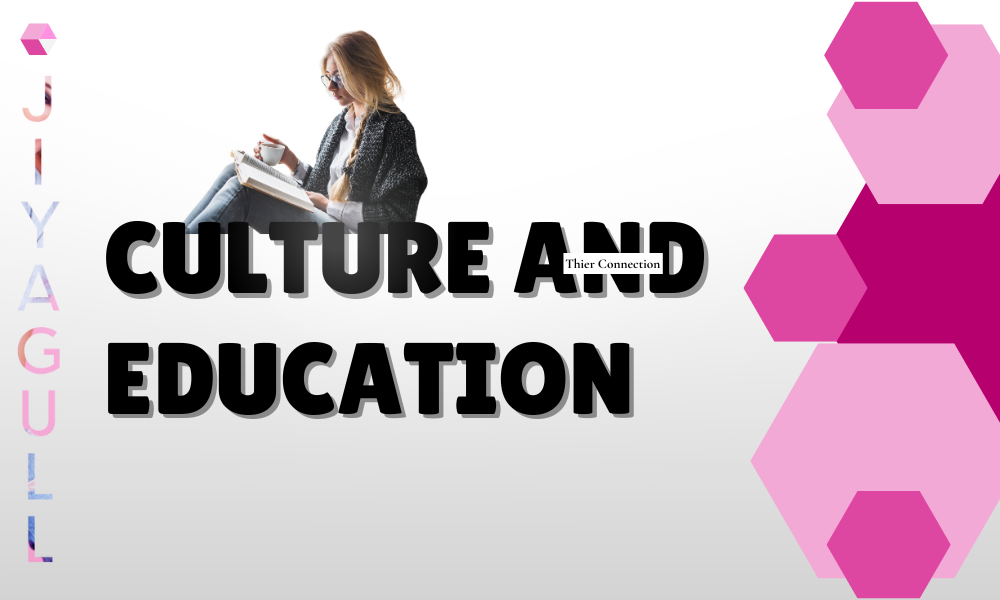The two key elements that shape our lives are culture and education. As a result, they affect how we conceive of and act in the world, as well as how we interact with it. Culture and education work together to form the foundation of society when we understand their relationship.
What is Culture?
Firstly we will know about culture.A group’s culture includes their beliefs, customs, and traditions. We change our language, our values, and how we see the world. The tradition of culture helps to maintain a sense of identity and community from generation to generation.
What is Education?
Secondly, now we will learn about Education. The process of education is the process of learning and gaining knowledge. Schools, homes, and experiences all play a role in it. Educating ourselves develops skills, helps us think critically, and helps us understand the world. Culture and tradition are also transmitted through it.
How Culture Shapes Education
Culture and education are closely linked. Culture influences what we learn and how we learn it. For example, in some cultures, education is focused on community and cooperation. In others, individual achievement is more important. These cultural values shape the way education systems are designed.
How Education Influences Culture
There is also a strong impact of education on culture as well. The purpose of education is to teach people about their own culture as well as the cultures of other people. In addition to helping to preserve cultural traditions, this can also assist in the introduction of new ideas and ways of thinking. It has been shown that education can change the cultural practices and beliefs of a society over time.
Language Role in Culture and Education
Language is an integral part of both culture and education. Communication and knowledge sharing are primarily accomplished through it. It is through language that we are able to understand and learn about cultures from around the world. Learning a new language also involves learning about its culture.
Cultural Diversity in Education
In today’s world, classrooms are becoming more culturally diverse. This means students from different backgrounds learn together. Cultural diversity in education can be a great benefit, offering students a chance to learn from one another and develop a broader understanding of the world.
Challenges in Culture and Education
However, Issues pertaining to education and culture can arise. Cultural differences can occasionally cause miscommunications or confrontations in the classroom. Instructors must be conscious of these distinctions and devise strategies for fostering an inclusive classroom.
Globalization and Its Impact on Culture and Education
People and cultures all across the world are now connected because to globalization. This has had a significant impact on education and culture. Although it offers fresh perspectives for education, it may also make maintaining cultural customs more difficult. Many people nowadays struggle to strike a balance between local culture and global influences.
The Future of Culture and Education
As the world continues to change, so will the relationship between culture and education. Technology, globalization, and new ways of thinking will all play a part in shaping this relationship. It’s important to keep both culture and education strong as we move forward.
Conclusion
Lastly, I will say Culture and education are deeply connected. They influence each other in many ways, shaping the world we live in. By understanding this connection, we can create better educational systems that respect and celebrate cultural diversity.
FAQs
1. How does culture impact education?
However, Culture affects what and how it is taught, influencing the values and methods used in education.
2. Can education change culture?
Yes, education can introduce new ideas and practices that can gradually change cultural beliefs and traditions.
3. Why is language important in culture and education?
Language is the primary way we share knowledge and culture. Morover, It helps us learn and communicate.
4. What are the challenges of cultural diversity in education?
Cultural differences can sometimes lead to misunderstandings, so require teachers to create inclusive environments.
5. How does globalization affect culture and education?
Globalization brings new learning opportunities but can also challenge the preservation of local cultural traditions.
